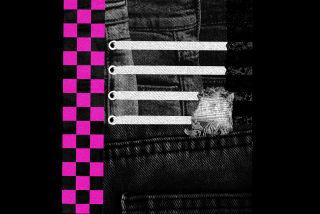Students Want to Be Called ‘Black,’ but Elders Disagree
- Share via
A majority of black secondary-school students surveyed in San Diego prefer the term black to describe themselves, while a majority of their parents and selected community leaders opt for the new term African American , according to results of a school district questionnaire distributed in May.
Of 1,500 students surveyed, 887 responded, with 53.7% favoring black and 40.9% favoring African American. The number represents about 12% of the 8,000 black children enrolled in city junior and senior high schools.
About 10%, or 160 parents out of 1,029 selected from district computer records, returned the survey, and they favored African American 48.8% to 40.6%. Of the 80 community leaders who were mailed the survey, 33 responded, voting for African American 69.7% to 18.2%. In all cases, some respondents indicated no preference.
Received Several Inquiries
The survey was conducted by Assistant Supt. George Frey, who heads the district’s community relations and integration services division. Frey acted after receiving several inquiries concerning district policy about name use.
Black leaders nationwide have been debating the merits of a change since the Rev. Jesse Jackson first focused attention on the issue with a call to use African American to stress historical and cultural roots.
Many district reports include racial references, ranging from enrollment reports at individual schools to the ethnic makeup of school groups.
Frey said that more than two-thirds of respondents in all three groups wrote comments about their selections.
One eighth-grade student wrote: “I’m black and I like being black. If there was a way that I could change my color, I wouldn’t change it.”
Negative Associations
But a ninth-grader countered, “I feel as though black is a color, a paint or something which involves crafts, but African American is a person, a noun.” And a parent said: “Children need good role models. Being labeled black doesn’t allow that . . . Black is often associated with something bad, such as black sheep, black magic or the phrase black image or dark shadow. “
Another mother wrote: “I am an American of black heritage. I am not an African living in America.”
Among the students, the support for black decreased by grade.
More to Read
Sign up for Essential California
The most important California stories and recommendations in your inbox every morning.
You may occasionally receive promotional content from the Los Angeles Times.













